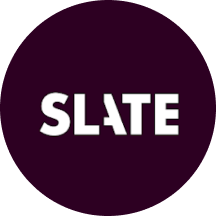OTTAWA — The House of Commons will reconvene on Monday, marking the first time Prime Minister Mark Carney will face Conservative Leader Pierre Poilievre since Poilievre's return to Parliament. Poilievre won a byelection in Alberta on August 18, allowing him to reclaim his position as Opposition leader after being defeated in his Ottawa-area riding of Carleton in April.
In a speech to his caucus on Sunday, Poilievre reflected on his unusual path back to leadership. "I took a more scenic route through eastern Alberta and enjoyed every minute of it, but it is great to be back on the job, on Parliament Hill, doing the job that Canadians need done," he said.
With his return, Poilievre aims to hold Carney accountable for the promises he made during his campaign. He criticized the current government, stating, "He promised that after 10 years of Liberal government driving up costs and crime and chaos, that he would be different. Yet, sadly, unemployment is worse. The cost of living is worse. Homebuilding is worse. Divisions are worse. The tariffs are worse. Crime is worse. Immigration is worse. That is not what Canadians voted for."
Carney, who spent part of the summer working on political strategies, has paused certain initiatives, including electric vehicle programs, to mitigate criticism from Poilievre. He has also established new entities, such as the Major Projects Office and Build Canada Homes, to address infrastructure needs. However, Carney acknowledged that the government's spending will lead to a larger deficit than last year.
Crime is expected to be a significant focus for the government this session, especially after the Liberals lost key seats in Ontario during the last election. Justice Minister Sean Fraser announced plans to introduce legislation addressing intimidation and obstruction at places of worship, as well as potential bail reform measures next month. Additionally, a bill concerning intimate partner violence is anticipated.
The Liberal government, operating as a minority, will need support from other parties to pass legislation. Poilievre has expressed a willingness to collaborate, stating, "We will oppose things we’re against, support things we’re for, but we will also propose solutions to the problems Liberals have created."
As the session begins, the government is preparing to present its first budget in October. Finance Minister François-Philippe Champagne indicated that the budget will balance austerity measures with investments aimed at economic growth and increased defense spending.
The New Democratic Party (NDP) is also navigating a leadership transition after losing official party status in April. They are set to choose a new leader in March, while interim leader Don Davies leads a small group of MPs with limited speaking time in the House.
As Parliament resumes, the dynamics between the parties will be closely watched, particularly regarding cooperation and legislative priorities.

 Canada News
Canada News

 National Post Politics
National Post Politics Edmonton Sun
Edmonton Sun Chek News
Chek News Slate Politics
Slate Politics People Books
People Books The Daily Beast
The Daily Beast OK Magazine
OK Magazine Raw Story
Raw Story